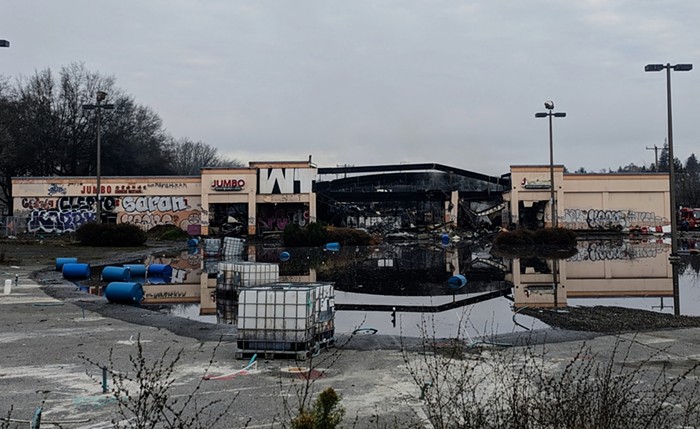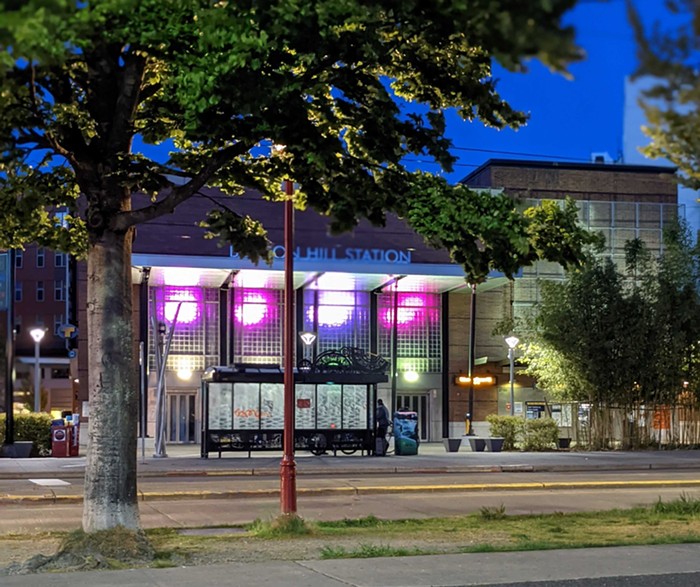
A new piece, "Seattle-ization’? American cities fear what’s happened here," by the Seattle Times' "FYI Guy," Gene Balk, claims the Seattle that emerged in the middle of this decade, the over-valued city, is not envied by other cities, but feared. What these cities imagine is that there is some way to couple rapid economic growth with a system that doesn't concentrate the wealth generated by the growth in fewer and fewer hands. There is, as it were, another city out there. One that's not Detroit or Flint, but, at the same time, is not San Francisco or Seattle, which is now "the sixth most expensive place to live in the country." Six years ago, our city was hardly more expensive than Portland, and was even cheaper than Anchorage, Alaska.
Balk writes:
In so many ways, Seattle is an amazing success story, thriving and economically vibrant, drawing thousands of people from around the country and the world. When you think about the great American cities that have fallen on hard times, that are losing population and dealing with epidemics of violent crime, Seattle seems enviable.
We must now examine the contradictions in this statement, because they expose why all cities that do not want to be Detroit (hard-times city) or a Seattle (money-bags city) have, at present, no other options, no third or fourth city, to turn to.
The truth is, we do not know why cities exist. We can't even define a city. All we have are a bunch of vague ideas and stories about the past (the myths of a transhistorical urbanism). The long-muddled state of things related to the concept of the urban is best expressed in Lewis Mumford's monument to boredom, The City in History. What we find in this work and almost all urban planning and theory is the idea of progress. Cities are like some kind of self-realizing spirit that unfolds over historical time and, in the process, becomes more and more of itself, more and more wonderful.
In this past, there was horse shit on the streets; now there isn't. In the past, there were no street lights; now there are. The ancient cities were mere children from which our electrified cities, with their advanced systems for disposing waste, emerged. But this is just a cruel story that, as such, exposes the failure of the progressive moment at the end of the 19th century to detach itself from Victorian myth-making. This movement believed the city, which at that point was dominated by crass market ideology, could just become its own if given the chance. What blocked this realization was a bunch rich idiots. Distribute wealth better, and the final, highest, city in its history of progress would be realized.
But the city imagined by progressives did not appear in any meaningful way peacefully. It was not until the bodies of millions of working-class people were scarified in two world wars that were triggered by crises in capitalism, that any ground was made to the kind of city that was what the modernists described as a 'massive living-machine' (the projects, social housing, Red Vienna; or the third city that, though obscured, is today between Detroit and Seattle)
And this tells us something important. Where did this third and fourth city (maybe the mobile city of trad PNW tribes) come from and why is it more in our heads than in reality? The cities of the deep past cannot answer this because they were directed by completely different economic (or cultural) forces. But this city of progress (picked up by growth ideology) is certainly new (but is also like the ink shot by an octopus—it confuses things). To begin with, that city, the city of others (the progressive city), is not (and could never be) a climax to the story of progress. It is something that's radically different from the urban as we have understood it over the past 300 years.
And so we have a progress that can only amount to growth and displacement and still claim to be progress. We know things have improved in the progressive sense and yet, it is not for all. The 'all' has been swamped by the narrative improvement. Improvement, chete (only).
My point is, the other cities considering Seattle's success (and its dangers) are not presented with other serious options. They do not exist. In capitalist societies, we have been confined to two cities: Detroit or Seattle. You can't really talk about how to avoid one without falling into the other. We imagine so because there is this Mumford transhistorical nonsense about the city of history that only needs to be revealed to proceed to Utopia.


















